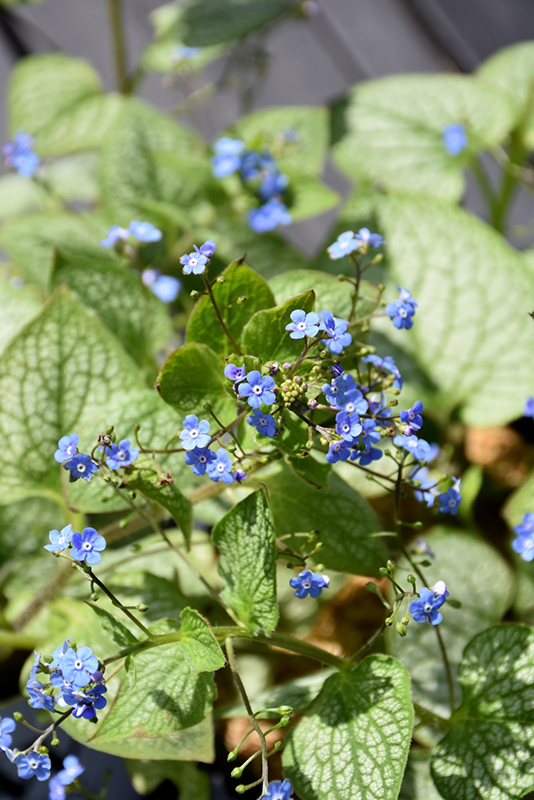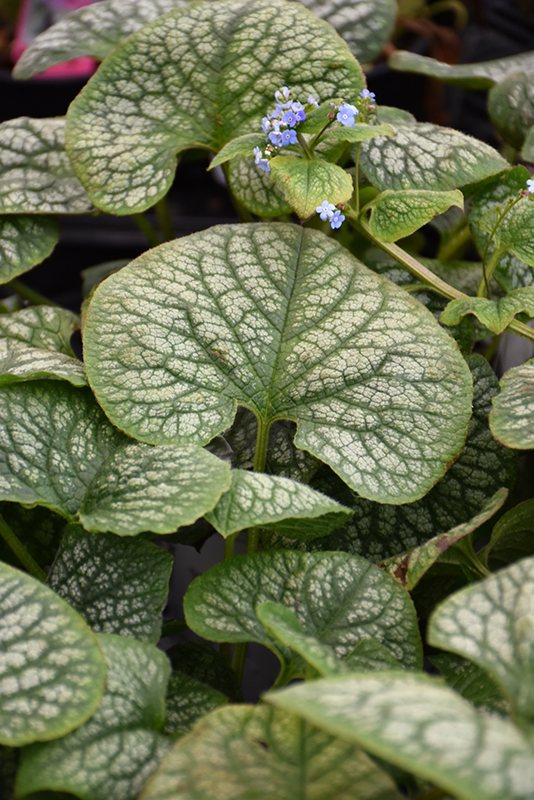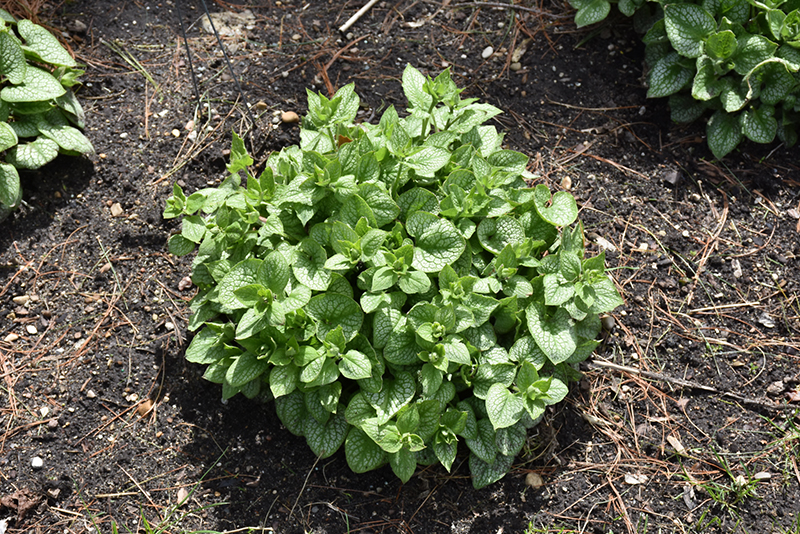Plant Finder
Jack of Diamonds Bugloss
Brunnera macrophylla 'Jack of Diamonds'
Height: 16 inches
Spacing: 28 inches
Sunlight:
![]()
![]()
Hardiness Zone: 2b
Other Names: Heartleaf Brunnera, Siberian Bugloss
Brand: Proven Winners
Description:
This outstanding selection features large, dark green, heart shaped leaves with a silver overlay that resembles lace; baby blue flowers emerge in the spring; fast growing mounded habit, great for use in containers, borders or as groundcover
Ornamental Features
Jack of Diamonds Bugloss features airy cymes of sky blue flowers with yellow eyes at the ends of the stems from mid to late spring. The flowers are excellent for cutting. Its attractive heart-shaped leaves remain dark green in color with showy silver variegation throughout the season.
Landscape Attributes
Jack of Diamonds Bugloss is an herbaceous perennial with a mounded form. Its relatively coarse texture can be used to stand it apart from other garden plants with finer foliage.
This is a relatively low maintenance plant, and should be cut back in late fall in preparation for winter. It has no significant negative characteristics.
Jack of Diamonds Bugloss is recommended for the following landscape applications;
- Mass Planting
- General Garden Use
- Groundcover
- Container Planting
Planting & Growing
Jack of Diamonds Bugloss will grow to be about 14 inches tall at maturity, with a spread of 30 inches. When grown in masses or used as a bedding plant, individual plants should be spaced approximately 28 inches apart. It grows at a medium rate, and under ideal conditions can be expected to live for approximately 10 years. As an herbaceous perennial, this plant will usually die back to the crown each winter, and will regrow from the base each spring. Be careful not to disturb the crown in late winter when it may not be readily seen!
This plant does best in partial shade to shade. It prefers to grow in average to moist conditions, and shouldn't be allowed to dry out. It is not particular as to soil type or pH. It is somewhat tolerant of urban pollution. Consider applying a thick mulch around the root zone over the growing season to conserve soil moisture. This is a selected variety of a species not originally from North America. It can be propagated by division; however, as a cultivated variety, be aware that it may be subject to certain restrictions or prohibitions on propagation.
Jack of Diamonds Bugloss is a fine choice for the garden, but it is also a good selection for planting in outdoor pots and containers. It is often used as a 'filler' in the 'spiller-thriller-filler' container combination, providing a mass of flowers and foliage against which the thriller plants stand out. Note that when growing plants in outdoor containers and baskets, they may require more frequent waterings than they would in the yard or garden.
This Plant Finder tool is an online catalog representing many of the varieties that we carry over the course of the season, and is intended for informational purposes only. Inventory varies seasonally, so we cannot guarantee that every plant will be in stock at all times - please contact the store for current availability. It does not include our entire inventory of plants, so be sure to visit us to see varieties that may not be represented on this list.



